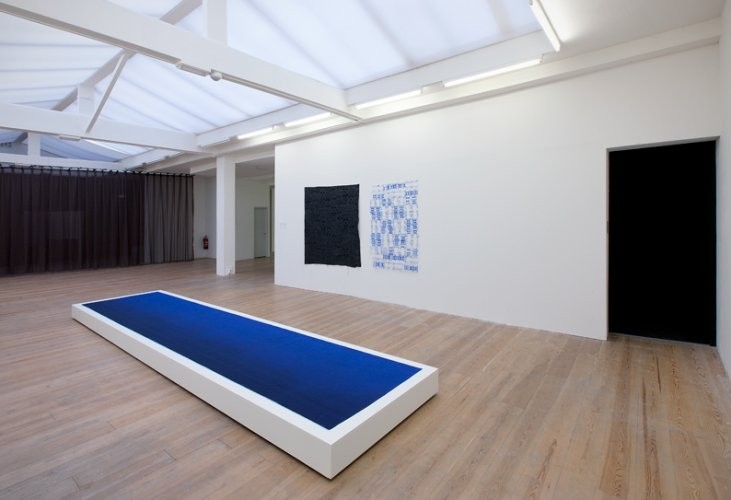Hollandaise
10 Apr - 01 Jun 2013
HOLLANDAISE
Godfried Donkor, Abdoulaye Konate, Wendelien van Oldenborgh, Willem de Rooij, Billie Zangewa
10 Aptil - 1 June 2013
Fabrics have played an important role in the decolonization of knowledge. Fabrics tell stories, family stories, stories of commerce, of labor, of creativity, of skills.The background for this exhibition is the long-standing commercial relationship between The Netherlands and Africa. The title refers to the colourful printed fabrics that are exported from The Netherlands to Africa, and are generally known in West Africa asHollandaise or Dutch Wax.
It was Dutch textile companies, such as Vlisco, who developed mass production and commercial applications for Indonesian Javanese batik in the middle of the 19th century, and found their largest markets at the Atlantic shores of Africa. Today the bright and distinctive wax prints are regarded as typically African. It is the result of complex globalization processes that created a constructed image of a certain Africaness.
The exhibition presents specially commissioned works that include videos and textile based works. The exhibition is accompanied by a fully illustrated catalogue with writings by political scientist Françoise Vergès, artist Senam Okudzeto and curators Jelle Bouwhuis and Koyo Kouoh.
Godfried Donkor, Abdoulaye Konate, Wendelien van Oldenborgh, Willem de Rooij, Billie Zangewa
10 Aptil - 1 June 2013
Fabrics have played an important role in the decolonization of knowledge. Fabrics tell stories, family stories, stories of commerce, of labor, of creativity, of skills.The background for this exhibition is the long-standing commercial relationship between The Netherlands and Africa. The title refers to the colourful printed fabrics that are exported from The Netherlands to Africa, and are generally known in West Africa asHollandaise or Dutch Wax.
It was Dutch textile companies, such as Vlisco, who developed mass production and commercial applications for Indonesian Javanese batik in the middle of the 19th century, and found their largest markets at the Atlantic shores of Africa. Today the bright and distinctive wax prints are regarded as typically African. It is the result of complex globalization processes that created a constructed image of a certain Africaness.
The exhibition presents specially commissioned works that include videos and textile based works. The exhibition is accompanied by a fully illustrated catalogue with writings by political scientist Françoise Vergès, artist Senam Okudzeto and curators Jelle Bouwhuis and Koyo Kouoh.

